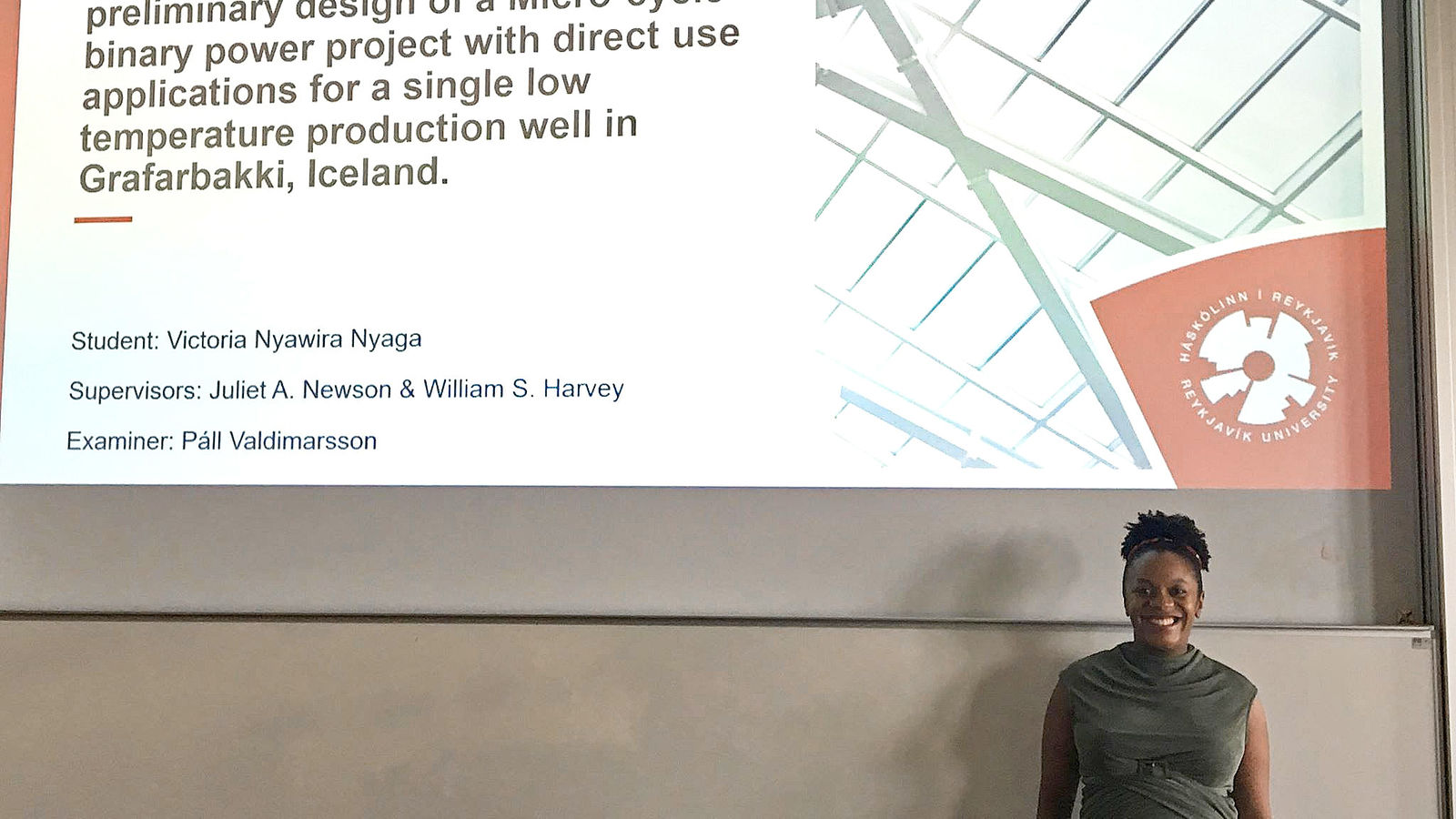MSc Thesis: Feasibility Study including preliminary design of a Micro-cycle binary power project with direct use applications for a single low temperature production well in Grafarbakki, Iceland
Victoria Nyaga successfully defends her master's thesis
REYKJAVIK, June 13 – After conducting her studies, Victoria Nyaga successfully defended her thesis where she designed a micro-cycle binary power plant and analyzed the feasibility through technical and economic perspectives. Victoria's work was supervised by William Scott Harvey and Juliet Newson from Reykjavík University.

The site Victoria analyzed is Grafarbakki which is in Flúðir, the southern part of Iceland. This site was chosen because knowledge of geothermal manifestations through the form of hot springs has been available for years. Surface exploration has been conducted in most of Iceland, and Grafarbakki has shown medium temperature, low enthalpy geothermal resources.
A few stakeholders came together to drill the well. Though the intention was to utilize the resource for district heating, the well is currently partially utilized for greenhouse heating and space heating for 2 households at approximately 5 l/s. The full potential of the well, however, has been shown to be approximately 60 l/s. Victoria analyzed and compared the effects of allocating part of the remaining resource to producing energy using a binary power plant and an aquaculture farm.
Victoria analyzed the thermal efficiency, the specific power output, and profitability of a power plant considering seasonal variations. This was compared to the resources required to produce Arctic Char aquaculture. Victoria concluded the power plant would have to produce a net power output 1800 kWe to yield a positive NPV and be profitable whereas it was more likely for the aquaculture farm to yield profits.
To read more about the different potential uses of medium temperature geothermal usages click here.
Congratulations, Victoria on an excellent thesis!
